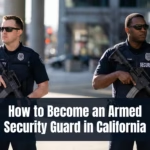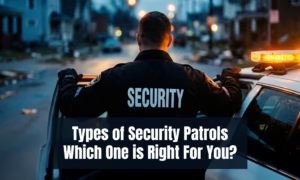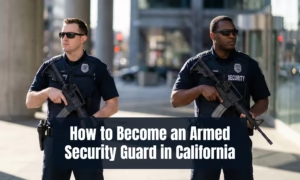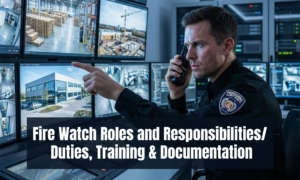Executive protection agencies offer various security services to VIPs; executive protection agent is the security personnel employed by the company to do so. The job of these agents is to be with the clients in their day-to-day lives and protect them from all potential harm coming their way.
Executive agents for protection do so by assessing the overall security situation of the client and devising and making plans as well as implementing them to cover any breaches in the security. Even if there are no substantial breaches, these agents add to the security situation and protect the VIP from all possible dangers.
What is An Executive Protection Agent?
An executive protection officer or agent is a security agent in charge of protecting the lives and interests of very high-profile clients, including VIPs, actors, athletes, and politicians. These agents are a complete security package and provide comprehensive security services, including house inspections, premise patrols, and transport security.
Since these agents are associated with the everyday life of their clients, it is not unusual for them to live within the house premises of the clients and act as their drivers to and from different destinations.
Executive Protection Agent Duties and Skills
executive protection officers protect clients by physically being with them throughout the day. They perform a diverse set of duties, for which they need specific critical skills. A company named Professional Security Guard Inc. is the best security guard company in San Diego that can provide highly skilled and qualified protection agents.
Duties and Skills
Some of the essential duties executive protection agents need to do, which are also the requirements to becoming a good one, include:
Monitoring The House Premises
This duty tops the list because it offers the client peace of mind regarding their security situation and can be paramount for their overall security. House premises are often the sites of thefts, burglaries, and intruder activities.
Thus, the agent must clearly understand the entry and exit points of the house, know about the potential break-in sites, and keep a regular check on them through security cameras and physical patrols. This will prevent any danger from entering the house and harming the client or the people around them.
Accompany The Client On Travels
Many VIPs are constantly on the move as they have to attend various shows and performances, meaning they spend a large chunk of their time traveling in their cars. These vehicles can become a site of a gravely serious situation for the client if the agents do not take care of the situation correctly and fail to identify threats.
To prevent such a situation, the agent must be aware of the travel route and should keep a close check on happenings of the surrounding during the travel. Keeping a close monitor on the routes allows the agents to spot any irregularity, and they can thus act to prevent the situation from escalating for the worse.
FOB Security
Fixed operation bases (FOBs) are temporary parking spaces for private planes that do not have their hangers. Since many VIPs have private planes, most do not have separate hangers to park them and take the services of FOBs. Thus these bases can become sites of danger for the clients if proper steps to make them fail-safe are not taken.
This responsibility of making FOBs secure for the clients falls on the shoulders of the executive protective agent. He should interact directly with the FOB authorities to ensure that they are maintaining proper security of the base and should be able to identify and correct any errors.
These are some of the most critical executive protection officer requirements, and their duties are to ensure their clients’ security. To effectively perform their duties, agents also need a specific set of skills, the most important of which are:
Adaptation To The Surroundings
Since many clients are constantly on the move, executive protection agents are also, and often they face completely new work environments. Many a time, they find themselves in other countries altogether. Thus, they must have a flexible work character and adapt rapidly to adjust to new surroundings.
This adaptability ensures that the agents are always alert and are on the lookout for any danger, even in the new environment. They must be able to evaluate the existing security strategies and make any required changes considering the change.
Rapid Decision-Making Discretion
The job of the executive officer for protection demands that they are sharp-minded and can make on-spot decisions rapidly. This decision-making ability is essential in the sense that many a time, the agent and the client face conditions that need immediate actions, such as responding to an emergency, eliminating the threat rapidly without putting anyone in danger, and making a quick survey of the area to check for danger before it presents itself.
All these conditions require the agent to make immediate decisions and the accompanying steps to prevent unfortunate incidents.
Individual Expertise
The executive protection officers are often the only authority present on dangerous sites and with clients during public appearances. In these cases, they might not be able to reach other agents rapidly and might need to act without any outside help. Thus they must be able to handle the situation independently and make difficult decisions based on their expertise.
How To Become An Executive Protection Agent
There are several steps to going about this business of becoming an executive protection agent which include:
Education
To start your agent journey, you must have a high school diploma or an equivalent degree from a reputable high school. Further education is not needed, but high school education is a must for applying to any executive protection agency.
Training
After education, what you need most is training. Many companies and firms offer such services, and can effectively train you to qualify for all the training requirements required for the job.
Joining A Specific Agency
Different agencies are offering different types of executive agent services. Some specialize in providing physical security through executive bodyguards; others offer cybersecurity services. It would help if you decided which field attracts you the most and which one is best suited to your abilities.
Building A Strong Network
Having a strong and well-connected network of like-minded people will help you get better job opportunities and will also help you make the most out of any job you get. Thus, having a network of similar people working to make the world secure for people can be very crucial in making you stand out.
Start Applying To Jobs
Regular research, having a good resume, and a little experience will open you up to many job opportunities, and you will be able to make the most out of them. Apply to several positions at once, and you’ll be able to know different work environments and will get a broad experience of the job.
What Is The Difference between Bodyguard And Executive Protection?
The significant difference between the two is the approach to solving the problems related to the job. Bodyguards react to any problem after confronting it and do not have a good idea before it presents itself. This is the reactive approach to solving the problem.
On the other hand, executive protection agents have a proactive approach, which means they can identify the problem before it presents itself and act beforehand to prevent any danger it may give rise to.
Executive Protection Agent Salary
The exact salary is different for every agent depending on the employer, the job’s location, and the agent’s experience level. But the salary for basic level agents begins from about $40,000 per year and can reach triple figures. Some agents also enjoy other benefits, including many insurances, paid vacations, and paid off-times.
FAQs
1. What makes a good executive protection agent?
Agility, fast decision-making, and acting rapidly to resolve the issue are some traits of good agents.
2. What are the principles of executive protection?
Protecting the lives and assets of clients, assing the risks, acting intelligently, and advancing strategically according to the location are some essential principles of executive protection.
3. What does a close protection officer do?
CPOs keep their clients safe and away from any damage or unwanted physical attention during public appearances and close contact with the general public.
Conclusion
Executive protection agents are sharp, elegant, and highly trained individuals who protect VIPs and other high-profile clients from unprecedented danger. They have the skills and training to handle all problematic situations and can effectively bring out the clients from any such situation. Only having the best of these agents can help you protect yourself and your loved ones, as only such agents can deter harmful threats. To get the best executive protection officers who know the job and all its parameters for protecting yourself or your loved ones, you can reach out to us at Professional Security Guard Inc.






